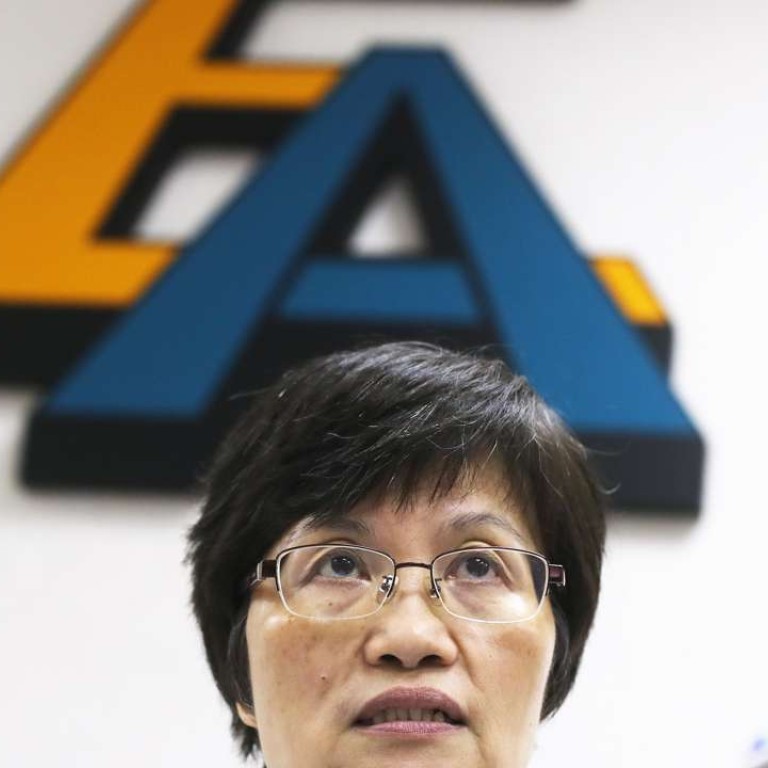
Perfect four: record low number of students get maximum score on Hong Kong secondary school exam
Just four students among 68,128 candidates achieved the full score on the Diploma for Secondary Education exam but more passed
Only four candidates gained a perfect score on the Diploma for Secondary Education (DSE) examination this year, the fewest since the exam started in 2012.
But the number of secondary school graduates who scored at least 2 – the passing score – in each subject has increased, as well as the number of those who met university entrance threshold.
Educators said the low number of perfect scorers could be related to the trend of top students opting for other curriculum such as the International Baccalaureate (IB) programme.
A total of 68,128 school and private candidates sat for the exam in March – about 8 per cent fewer than the total number last year – due to the continuously dropping number of secondary school students, which is attributed to the city’s low birth rate.
Three females and one male student, all school candidates, obtained the highest score of 5** in the four core subjects and three elective subjects, achieving the highest total marks possible.
There were 11 perfect scores from eight schools last year, 12 in 2014, nine in 2013 and five in 2012.
Wong Hak-lim, a maths teacher and vice-principal of Buddhist Ho Nam Kam College in Yau Tong, said more top students might think that choosing other curriculums such as IB, which might be more fun and flexible than DSE, could also lead them into universities.
He added that more students might have also opted to take two elective subjects instead of three.
About 69.1 per cent of school candidates took two electives this year, compared to 68.7 per cent last year.
But Dr Tong Chong-sze, secretary general of the Examinations and Assessment Authority, said the small number of perfect scorers was statistically insignificant every year and there was no point comparing the figures. He said people should focus on the overall performance of candidates.
“The focus on perfect scorers is something belonging to the imperial examination system,” said Tong. “Nowadays we should not continue to use a mindset from hundreds of years ago.”
A total of 23,611 school candidates – 42.2 per cent – obtained at least the minimum score required by the eight government-funded universities, scoring at least 3 in Chinese language and English language subjects, and at least 2 in maths and liberal studies subjects, which is 1.9 per cent higher than last year.
They will compete for some 15,000 government-subsidised undergraduate places, meaning 36 per cent of the qualified candidates might lose out.
A total of 39,000 school candidates – 71.2 per cent – scored at least 2 in each core subject and one elective subject, an increase of 1.7 per cent from last year, meeting the basic requirement for associate degree programmes and civil service positions.
Three serious cheating cases were found this year, including one where a candidate tried to seek help online via mobile phone, and two where candidates attempted to peek at the answers of others. All three were disqualified.
The oldest candidate is a 69-year-old who took six subjects. The youngest is a 12-year-old who took one subject. The authority declined to reveal their scores.

